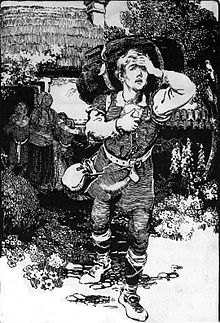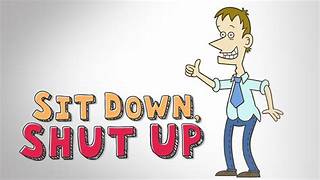At the beginning of August I returned to Riding Lights’ Summer Theatre School. This residential week of theatre and faith was the place and community which brought me back to God. It was also the place and community that introduced me to my first wife, Sarah; it was where I proposed to her and where, for several years, we went to celebrate these two fundamental parts of our identity: God and theatre. The summer school and the wider Riding Lights’ community have been my home base in terms of reflecting on who I am, as a Christian and as a theatre practitioner.
Before last year I had taken a break from Riding Lights’ Summer Theatre School due to bereavement. Sarah died in 2018 and I struggled with the idea of returning without her. In 2022 I received a text message from the Artistic Director, Paul Burbridge, asking if I would consider being a tutor in that year’s summer school. I was to direct, with him, a series of Chekov short plays. I jumped at the chance, not only of returning, but also working, for the first time, with him. It was a delight but it was tinged with sadness as memories came unbidden.
I was preparing to return to summer school this year and had had some brief but non-committal conversations with Paul before he sadly died in April. The shock of Paul’s death put everything, understandably, on hold. When Riding Lights asked me if I would still come and tutor again I agreed and asked what script I would be working with. I was to produce an abridged version of ‘Walkout!’, itself a stage adaptation of John Bunyan’s, ‘A Pilgrim’s Progress’.
Each year Riding Lights has a theme that aims to unite the different courses across the summer school. This year’s theme was, “Rise Up and Find Your Voice”. I have to admit I struggled to know why the text of our show was chosen to explore this particular theme. Don’t get me wrong, I can see how it could be very apt: Bunyan encourages his reader to be confident with their faith and not to be swayed by the many tempting and demanding voices we hear in life that try to silence us as we progress towards the celestial city of God. My question was, knowing that the summer school would produce shows of protest and ‘speaking out’ on all the issues of our day, how Bunyan’s 350 year old text would be received or explored at this politically contested time.
John Bunyan is unashamed in his evangelical fervour and uncompromising demands of faithfulness to the gospel. The adaptation, despite some dated reference, keeps the tradition of the text alive in terms of challenging and questioning political, philosophical and sociological progress and suggests that these lead people away from the historical faith as passed on by the Apostles. Exploring this text as part of the theme made me ask deep questions about what it might mean to ‘find my voice’.
Here’s the rub. Can we really ever ‘find our voice’? How do we know when we’ve found it? Do we have only one voice, or are we a cocktail of voices some of which compete and contradict one another? What is the purpose of finding ‘our voice’?
Regular readers of my writing will know that I struggle with the popular notion and demand of self-knowledge that our culture obsesses over. Thankfully we have seen the end of the popularity of the reality ‘talent’ shows that regularly showed us people who “believed in themselves” and could only do “what they were made to do”, ie. sing/dance/perform, etc. Despite many being told they were not any good they were there to “prove themselves”. This has impacted our society by implying that the self is a singular, static thing that we are charged with discovering and protecting. This denies, therefore, the possibility of change. This is not good for relationships or our mental health and yet our culture increasingly demands we ‘find our voice’. Why?
When directing a piece about faithfulness to God and not being lured away by ‘self-actualising philosophies’ and ‘vain confidence’ I found again the extremes in the current socio-political debate of our time jarring. In our production we chose to rotate the main role of Christian round the cast so that most people got a chance to voice the epitomous pilgrim and, in addition, they would also play a role of temptation be that, Vain Confidence, Hypocrisy or any of the other cavalcade of distractions Christian and his fellow pilgrims (Hopeful and Faithful) face along their progress. We wanted the cast and the audience to acknowledge the different voices we can possess (or, maybe, that possess us). We wanted to explore how we slip into characters that others and wider society want us to perform and how we have a choice as to which voice we find and use.
Thomas Merton, a trappist monk of the twentieth century, wrote a lot about ‘self’ and his writing is still a prophetic challenge against the narcissitic tendencies of the modern world. He questioned the ease with which we talk of ‘self’ outside the context of God and invited us, as does ‘Pilgrim’s Progress’, to find our selves only in relation to God’s desires for us. Merton saw the task of the Christian life, expressed in the monastic tradition, as “an unconditional and totally humble surrender to God, a total acceptance of ourselves and our situation as willed by Him.”
It means that renunciation of all deluded images of ourselves, all exaggerated estimates of our own capacities, in order to obey God’s will as it comes to us in the difficult demands of life in its exacting truth. “Purity of heart” is then correlative to a new spiritual identity – the “self” as recognized in the context of realities willed by God
Thomas Merton, Contemplative Prayer (London: Darton, Longmann and Todd, 2005) p.83
I regularly find the debates around identity baffling, confusing and disorientating. This is in part due to my neurodiversity but it is, I think, also about the deep dissatisfaction we all feel having pursued the social liberal project to its extreme position. Our deconstruction of social institutions that have formed our civilisation for centuries have not brought peace and balance but the opposite. We have not arrived at the utopian social construct promised to us by the revolutionary movements that have shaped our culture but rather we live in deeper confusion and division. It’s because, I suggest, despite all the conversation about power, we’re not being as honest or transparent about it as we should.
When it comes to power I am of the mind always to know what power/privilege I have and to use it for the benefit of others and, if there is a conflict, to side with the economically poor and dispossessed. Surrounded by a society that asks us to find our political voice in the current social justice culture I have to admit I am not encouraged to find my voice or, worse, the voice that I find is wrong and needs to be corrected. How do I deal with that? When I am asked to ‘rise up and find my voice’ and yet I am left feeling like I’m also being told to ‘sit down and shut up’ do I just accept that I am now dispensable in public life? This, I feel, is a deliberate strategy by certain parts of our society who have ambition not for others but for them selves.
I get it. I am a straight, white man. I know my privileges but my privileges are not, I don’t think, due to my race, gender or sexuality. My privilege is class, education and economic privilege. I want to talk about those things because they are things I can use to benefit others and they are things we can actually change. We are lost in political battles for ‘equality’ which, as Douglas Murray rightly suggests, has overreached itself so now we strive that all are to be equal but, to quote George Orwell, ‘some are more equal than others’. Murrray, a gay man himself, notes the strange situation where ‘straight’ people who come out as gay are lauded as brave but ‘gay’ people who come out as straight are treated with suspicion and doubt. The increased valuing of news items of people ‘coming out’ in different forms and the accompanying demand for others to affirm this new ‘identity’ out of fear of causing suicidal offence remains strangely unhealthy to me. Why do we feel forced to publicly declare our identities? What is the purpose of the obsessive discussion and demands that we affirm one another’s current identity as the definition of ‘loving’?
Rightly or wrongly, I believe that love doesn’t just accept the other as they are but is expectant that the other will continue to change. I am who I am today, but tomorrow I have hope that my voice might be different. I hope that tomorrow I’ll sound less like me and more like Jesus Christ. The voices I hear in the public square at the moment are not ones that I find comfortable or desirable. So I am strangely content to step aside from the competing noise of public life and find my voice in harmony with his, who created me and who desires me to change from glory to glory; for that is what means to be on the pilgrim’s progress.


